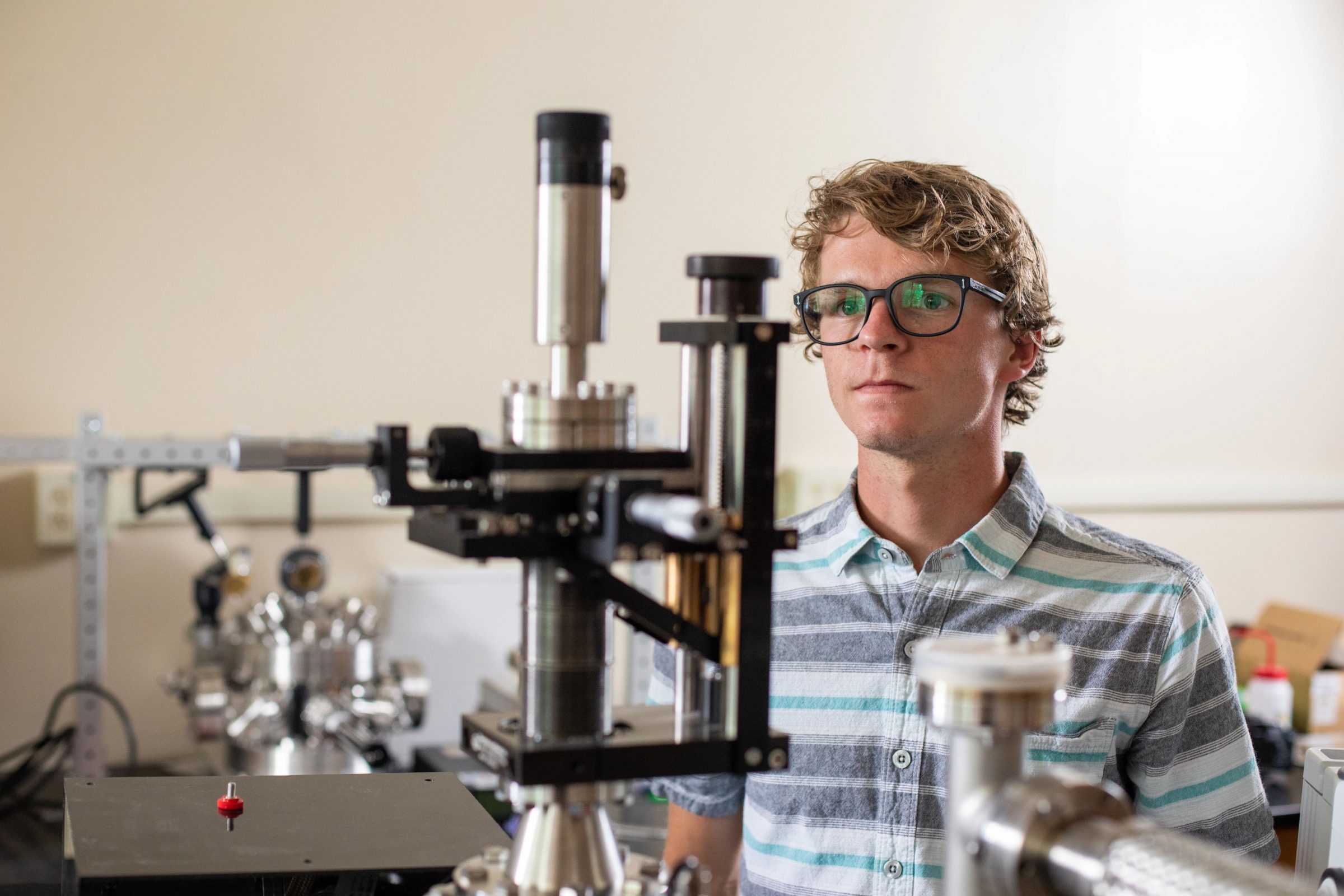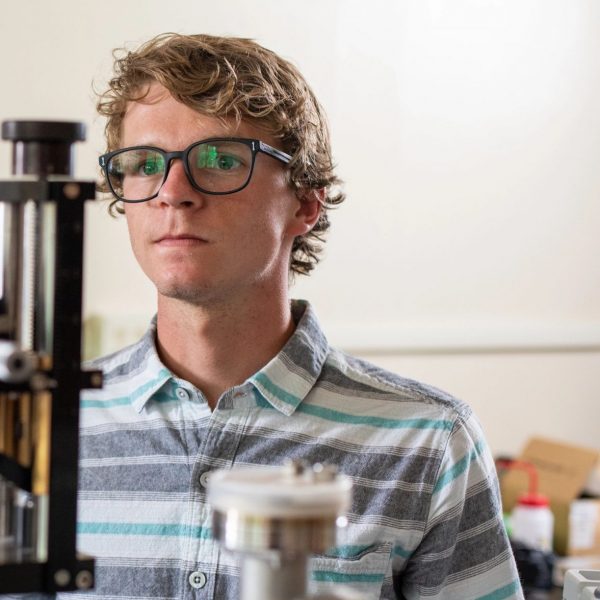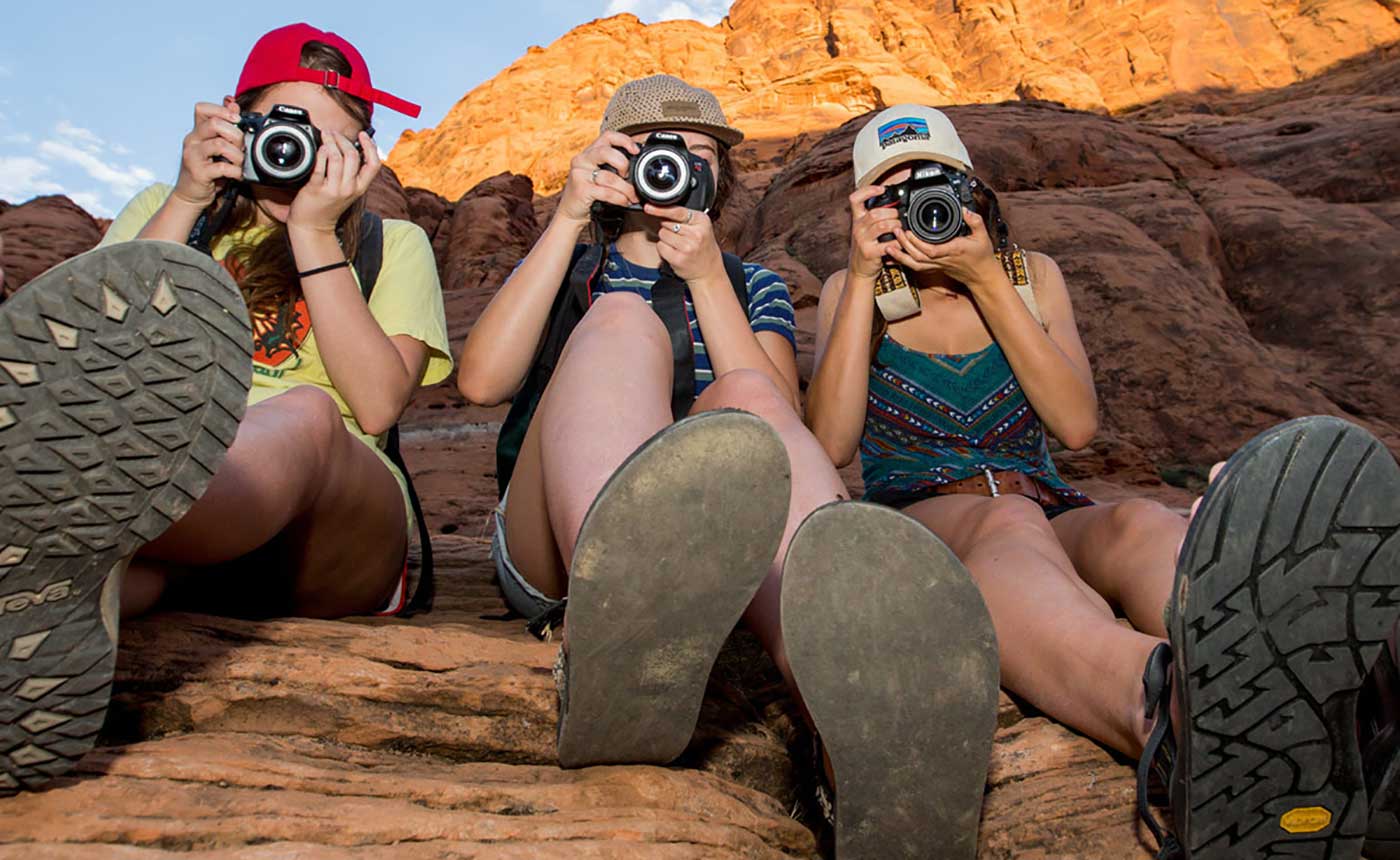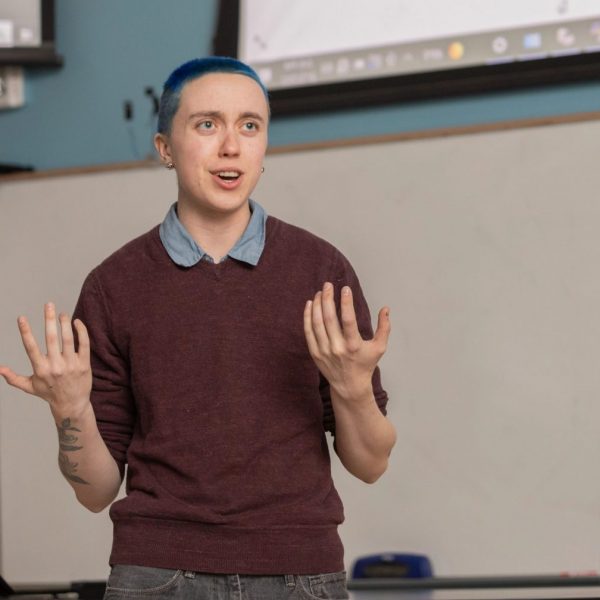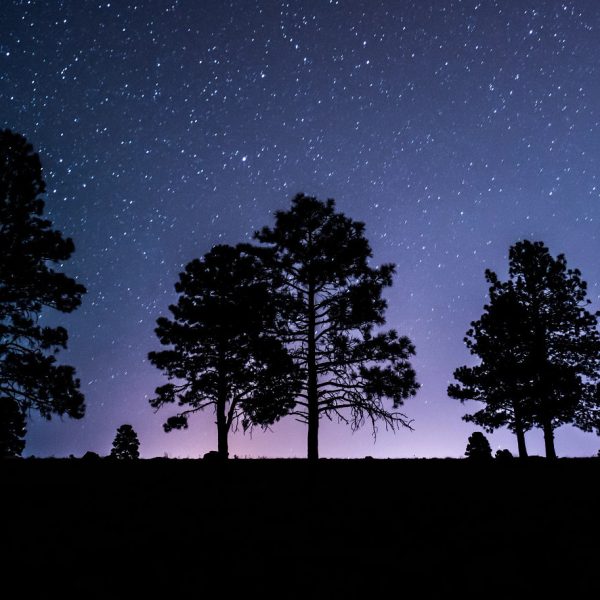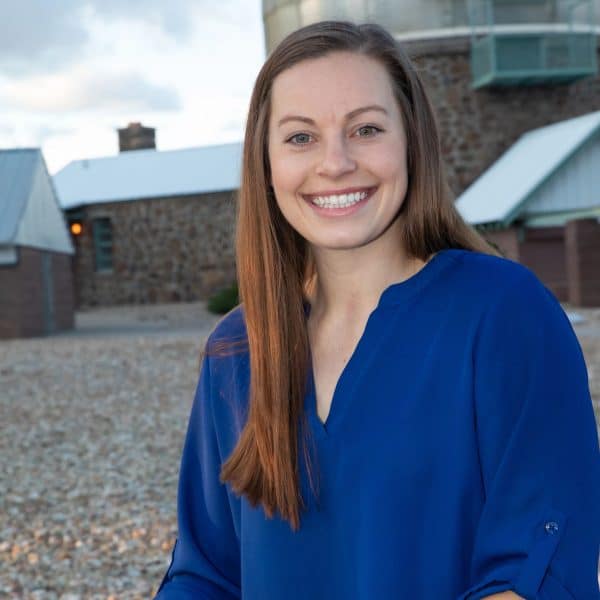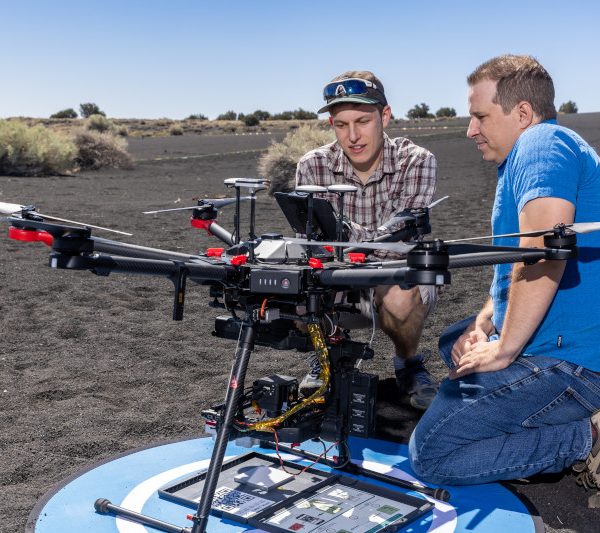Cross-country runner and physics and mathematics double major Beau Prince studies the surfaces of asteroids—but his dreams don’t stop there.
Growing up in Carlsbad, California, Beau Prince wanted to be an astronaut. When it was time to go to college, the high school track athlete enrolled at NAU as a member of the cross-country team. His dream was to be a professional runner, and for him, Flagstaff is “the best place in the world to run.” But as his college career began, Prince’s curiosity about the solar system returned. The introductory physics classes he was taking weren’t enough. So, during the summer after his freshman year, he reached out to several professors in astronomy and physics to ask for volunteer opportunities.
Associate Professor Mark Loeffler invited Prince to visit his Processes, Environments, and Astrochemistry on Extraterrestrial Surfaces (PEAXS) Research Lab, where a team of researchers studies planetary geology and reflectance spectroscopy. Reflectance spectroscopy is a scientific procedure that allows researchers to determine the composition and properties of materials, sometimes from light-years away. Loeffler put Prince to work and started him on his degree path.
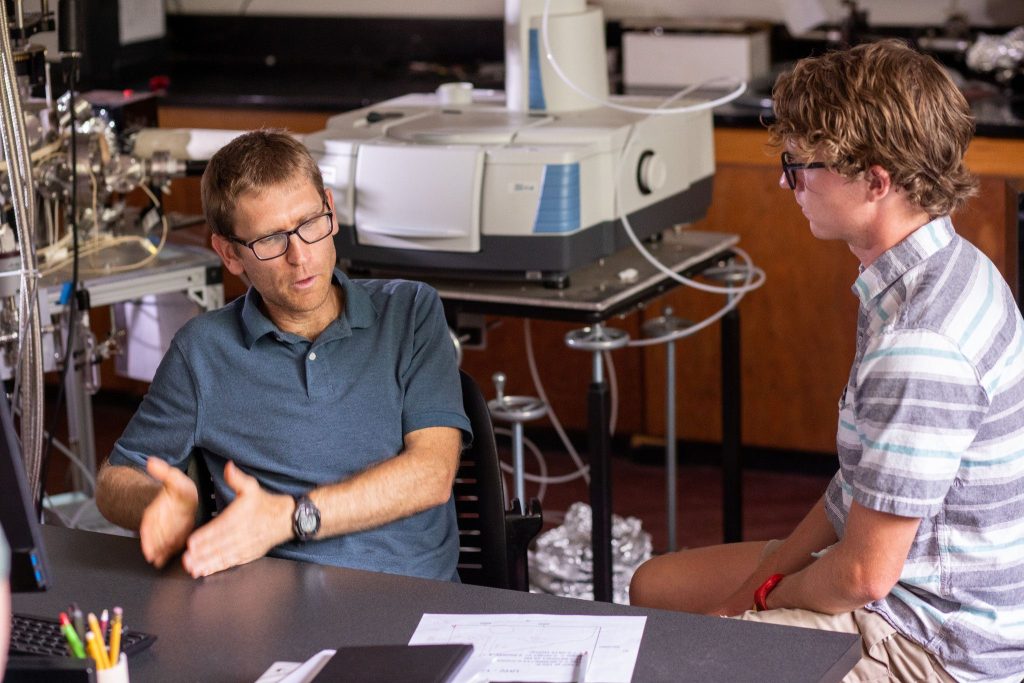
In the lab, Prince finally found a way to satisfy his tactile curiosity. “Being able to work with my hands is really fun—using spectrometers, high-powered microscopes, and other highly technical and hard-to-use but interesting instruments,” he says. “And collaborating on the work has encouraged me to formulate my own questions about the universe.”
Prince enjoys learning how to use a wide range of equipment, putting his natural mechanical ability to work. “We build a lot of stuff in our labs, using a lot of different machines and parts. You have to learn how to use everything,” he says. “I know a lot of people don’t like to work with their hands, or learn how to use a complicated machine and understand how it works, but I enjoy that. And so maybe the patience to learn all that is probably more of what drives my interest in the instrumentation.”
As a researcher in the PEAXS lab, Prince committed to learning as much as he could about how to design and conduct effective experiments. Along the way, he became more and more involved in studying space, especially the phenomenon of space weathering, which is the study of what happens to the surface of any object exposed to the harsh conditions of outer space. As his interest in planetary science grew, Prince continued to pursue majors in both physics and mathematics. Through Loeffler’s mentorship, Prince’s scholarship has also grown. “Beau is a great student who really has made the most out of his opportunities,” says Loeffler.
Prince has already authored or co-authored three peer-reviewed research papers—an impressive feat for an undergraduate. All three papers have to do with understanding how space weathering alters the surfaces of asteroids over time, and how the presence of different components affects their reflectance spectra. That may sound complicated, but Prince is up to the task.
Over the course of his undergraduate career, Prince garnered multiple awards, funding, and honors for his work. In 2020 he was selected as a Goldwater Scholar, a prestigious award that provides scholarships to undergraduates who intend to pursue research in natural sciences, mathematics, or engineering. He is a recipient of the Hooper Undergraduate Research Award (HURA) for his project “Investigating Space Weathering on Carbonaceous Asteroids.” Prince was also selected as a Big Sky Conference All-Academic honoree in 2021 as a member of the men’s cross-country team.
After graduating in May 2022, he plans to pursue a PhD in astronomy and geological sciences and conduct astrophysical research.
“I really like doing science, so I would like to have a career that lets me continue doing that. Part of me really wants to teach eventually, too, so a faculty position is something I might consider. If I could work with students, that’d be nice. I think it would be great to pursue some of the questions that I’ve been thinking about while at NAU,” Prince says.
Prince’s advice for students who may be thinking about doing research is simple: “If it’s something that interests you at all, you don’t have to know much about it to get started. Professors are happy to show you what they do. The simple act of emailing a professor to ask what kind of research they do is the single best thing you can do. And do that sooner than later, because the more time you have, the better you can be by the time you graduate.”

